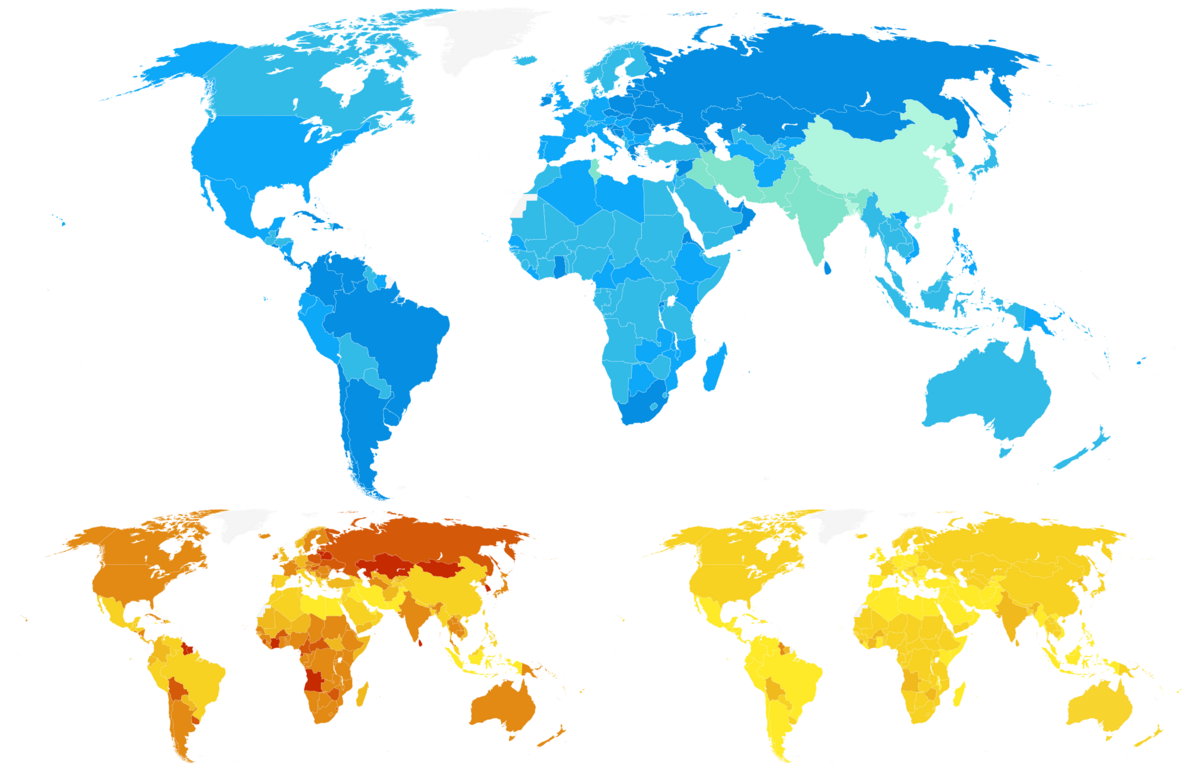Interesting survey
It is not exactly super surprising or shocking, but it concludes that people with pro-life leanings generally hold gender-biased views towards women (see p.19) and hence the pro-life / pro-abortions divide is a part of a much wider discussion than just the general question of from what time does a fetus warrant being treated as a human being requiring strict protection (ie. the question that the ECtHR explicitly refused to adjudicate in its 2004
Vo v France due to political controvery of the question).
For example, only less than half of those in favour of strict bans on abortions agree that
positions of power in society should be equally shared between men and women (as opposed to 80 percent in case of people in favour of legal abortions), 57 percent of pro-life agree that
men generally make better political leaders (as opposed to 24 pro-abortion) or 23 percent of pro-life agree that lack of women in political offices affects women's equality (as opposed to 70 percent).
While being a US survey, I suspect it is applicable to all the usual suspects (hello to Poland!).
In other shameful news, some countries signed the
Geneva Consensus Declaration on Promoting Women's Health and Strengthening the Family, a funny piece of an agreement in which you can see how,
inter alia, Pakistan, United Arab Emirates or Saudi Arabia pledge to
ensure the full enjoyment of all human rights and equal opportunity for women at all levels of political, economic, and public life, but that centers around the - surprise, surprise - effort to bad interruptions. Thus, the signatory states pledge to
improve and secure access to health and development gains for women, including sexual and reproductive health, which must always promote optimal health, the highest attainable standard of health, without including abortion, and to
reaffirm that there is no international right to abortion, nor any international obligation on the part of States to finance or facilitate abortion, consistent with the long-standing international consensus that each nation has the sovereign right to implement programs and activities consistent with their laws and policies.
The non-existence of international obligation to finance or facilitate abortion is most probably quite correct. While the US has found the right to an abortion in its constitution in Roe v Wade, in European human rights law, which is generally magnitudes more forthcoming to the rights of an individual than international human rights law, it was e.g. stated by the ECtHR in 2013 that no right to abortion can be inferred from the right to personal or family life, ie. the right that guarantees autonomy of the person and is generally the most far-reaching fundamental right in the European Convention (in certain situations, a right to abortion probably can be inferred from the right to life of the mother, though. As a sidenote it can be added that while there is no right to an abortion in Europe, EU law safeguards the freedom of an individual to seek an abortion in another Member State as abortions are considered an economic service). General international human rights right to an abortion? Probably nonexistent at this time. Probably never going to exist too.
What is quite funny about the Geneva Consensus is the composition of states that signed. There is a ton of Islamic and third-world countries, then there is the USA and finally, the EU is represented by, surprise surprise, Hungary and Poland. I don't quite get the purpose of this whole show? Will anyone proclaim the right to an abortion an internationally recognised human right? No, not in any conceivable time. Hence, some countries just felt the need to proclaim that they don't like abortions. In any case, having your country's signature on a paper next to singatures of such a strange club of hardly civilised, at least from the western viewpoint, countries is shameful.
















